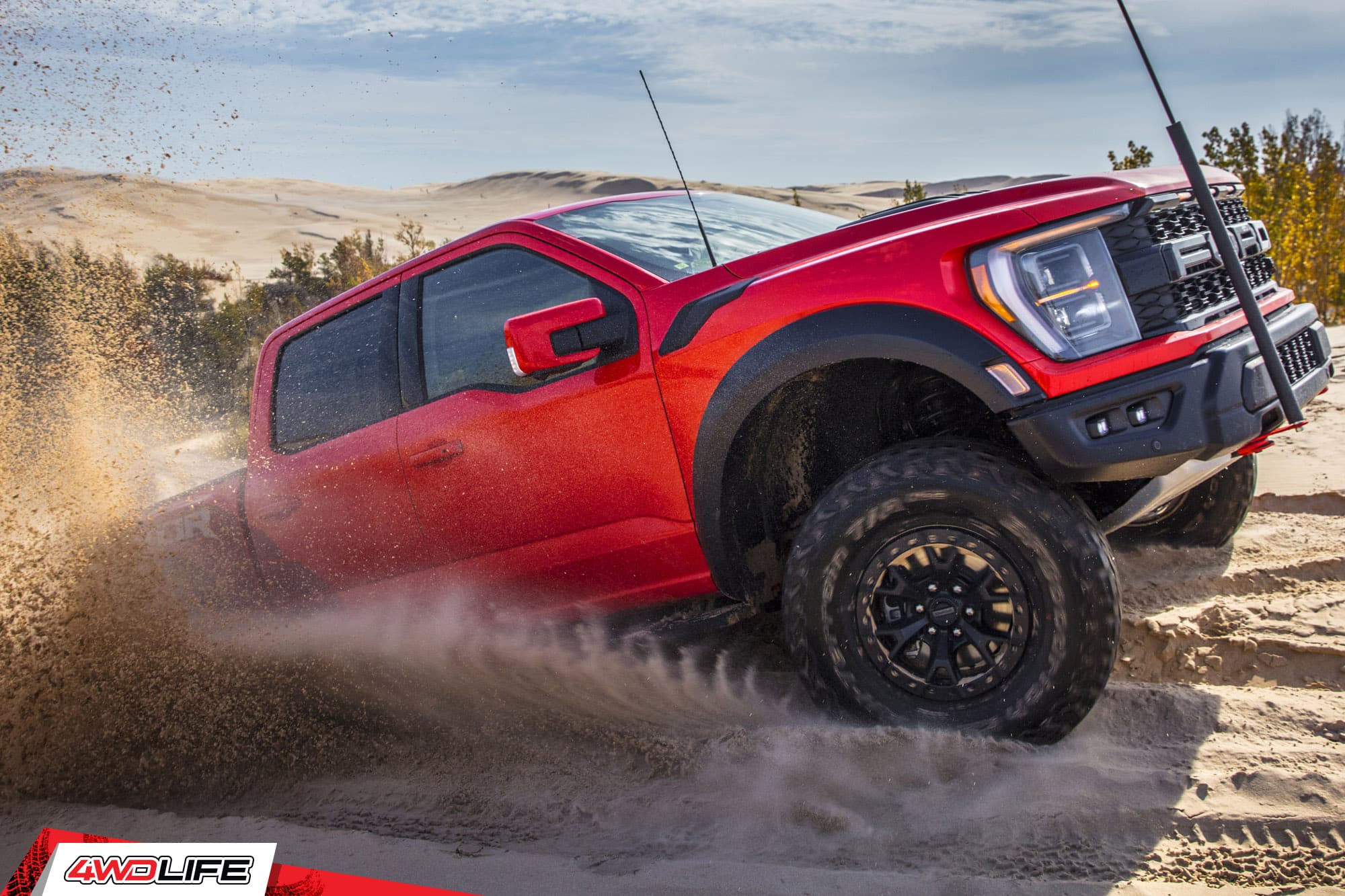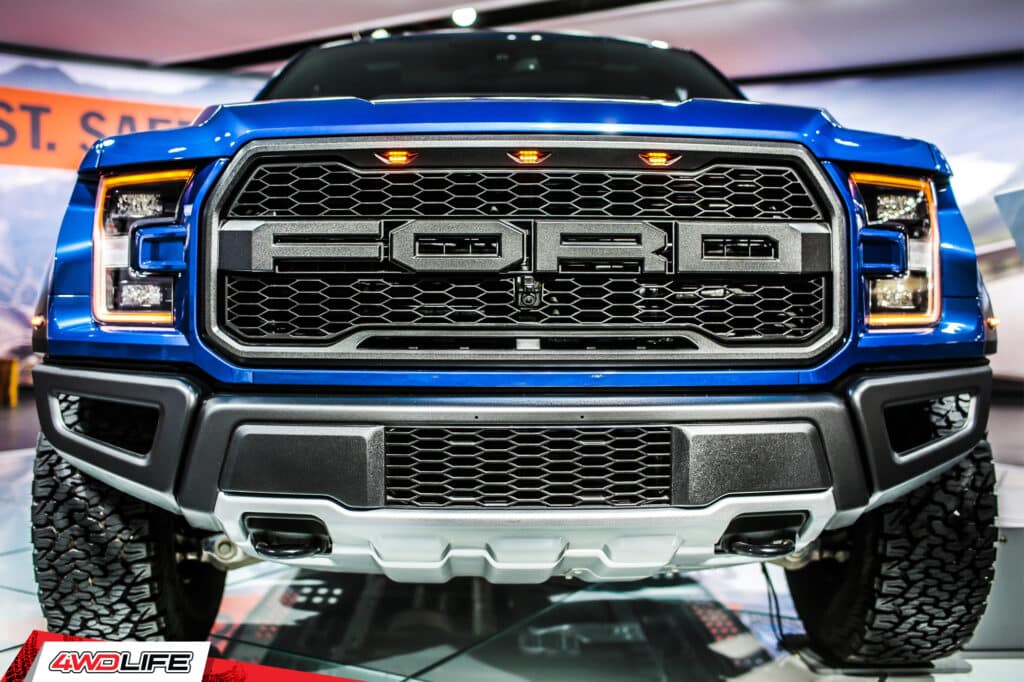
For the past decade, the Ford F-150 Raptor has been thrilling adventurers with its off-road performance pickup capabilities. Whether you want to take a wild ride through rough terrain or blazing deserts, this legendary full-size crew cab truck will be ready for any challenge.
The truck has been highly regarded by enthusiasts that demand a combination of power and performance. The aggressive designs and changes from the base F-150 also makes it a head turner on the road.
But how well does it live up to the “Built Ford Tough” slogan? How long will you get to enjoy its off-road capabilities before having to replace it? These are questions many have when considering this vehicle.
Let’s uncover the reasons behind this vehicle’s enduring popularity by delving into its reliability rates. As we examine the background, capability, and dependability of this classic car, we will answer these questions and more.
Ford Raptor Lifespan

To gain the best understanding of the Ford Raptor’s lifespan, let’s start with its warranty and work our way to its engine, transmission, and suspension performance.
Warranty
Standard: Ford offers a 3-year, 36,000-mile bumper-to-bumper limited warranty for all new Raptor models.
Rust: The manufacturer also provides a 5-year, unlimited miles corrosion warranty on its Raptor models.
Accessories: You’ll also get a 2-year, unlimited miles limited warranty on any accessories installed at time of purchase.
Major Components
Engine: Ford Raptors are known for having exceptional engine performance and life. You can easily get 300,000 miles out of your Raptor with proper maintenance and care.
Transmission: Second generation Raptor years and up are equipped with a reliable 10-speed automatic transmission that is responsive and smooth (previous models had a six-speed automatic transmission). It’s expected to last an average of 125,000 miles.
Suspensions: The Raptor’s suspension system is designed to tackle tough terrain and provide a comfortable ride. You can expect it to last between 10,000 and 50,000 miles, depending on how often you take it off-roading.
Will a Ford Raptor Last 200,000 Miles?
Yes! The Ford Raptor is a reliable machine that can easily last you 200,000 miles or more with proper maintenance and care. As long as you keep it in good condition and give it the regular check-ups it needs, you can count on your Raptor lasting you for many years to come.
Will a Ford Raptor Last 300,000 Miles?
The Ford Raptor has the potential to last you 300,000 miles or more. Again, this all depends on how well you take care of it and how often you use it. Some owners report getting 400,000 miles out of their Raptors!
Maintenance to Extend Ford Raptor Lifespan

In order to make the most of your Ford Raptor, it is essential that you take good care of it by performing regular maintenance. Let us explore how this will help extend its lifespan!
Preventive Maintenance Service Intervals
In this section, let’s examine the typical preventive maintenance schedule for the Ford Raptor.
Oil Change: Oil and oil filters need to be changed every 7,500 miles.
Tune-Up: Spark plugs, air filters, fuel filter, and belts should be inspected every 10,000 to 15,000 miles. Timely tune-ups can ensure optimal fuel economy, so don’t skip this essential step.
Fluid Changes: Transmission, ATF, and coolant should be changed or flushed every 50,000 to 100,000 miles.
Lubrication: All four-wheel drive components need to be lubricated at least twice a year.

Other Components that Need Replacement
Aside from the abovementioned maintenance schedule, other components may need replacing in order to keep your Ford Raptor running at peak performance.
Battery: The Raptor’s battery should be replaced every 2 to 7 years, depending on your environment.
Brake Pads: The brake system need to be inspected regularly and replaced as necessary. In most cases, the front brake pads will last up to 60,000 miles but may need changed as early as 30,000 miles.
The same applies to the rear brake pads. They can last up to 70,000 miles, but you might have to replace them as early as 25,000 miles.
Fuel Pump: The fuel pump should last up to 100,000 miles before you have to replace it.
Timing Belt/Chain: The timing belt (which is found in earlier models) should last up to 100,000 miles, depending on your driving habits. Newer Raptor engines feature timing chains which should last the lifespan of the truck.
Common Ford Raptor Problems

This truck is generally a reliable vehicle, but there are some common Ford F-150 Raptor issues that can arise with age. One of the biggest is a faulty oil pan. Because Ford Raptor years prior to 2018 used plastic oil pans, the pan can begin to crack over time. This led to leaky oil pans. If left uncorrected, this could lead to serious engine damage.
Another common issue with aging Ford Raptors is that the transmission can start to jerk. This means it might not work smoothly when you drive it, and it could cause a bumpy—and unsafe—ride. If you notice this issue, have it examined by a qualified mechanic.
Finally, some drivers claimed their Ford Raptor models experience wastegate rattle. This is caused by a defective wastegate arm clip and can be fixed with a few simple parts and repairs.
If you want to make sure you’re buying a good used car in the Ford Raptor, you should look into its best models from 2018 and up. These newer models have very few complaints and generally perform well across the board.
The bottom line is that Ford Raptor models are generally dependable vehicles, but they do require regular maintenance to ensure they stay in top condition. If you keep up with routine service and repairs, you can enjoy your off-road adventures for many years to come!
Is the Ford Raptor Worth Buying?
If you’re looking for a robust and dependable vehicle that can conquer the toughest rugged terrain, then the Ford Raptor should be at the top of your list. Unparalleled power output and towing capacity combined with driver-assistance features makes it one of today’s most desirable pickup trucks available.
When it comes to reliable vehicles, the Ford Raptor is in a class of its own. Its powerhouse engine will provide you with countless miles of thrilling adventures and off-road driving—making this pickup truck built for journeys into the unknown.
With that said, be sure to read up on any models affected by potential issues before committing; after all, investing in something as important as a vehicle should not be rushed!
